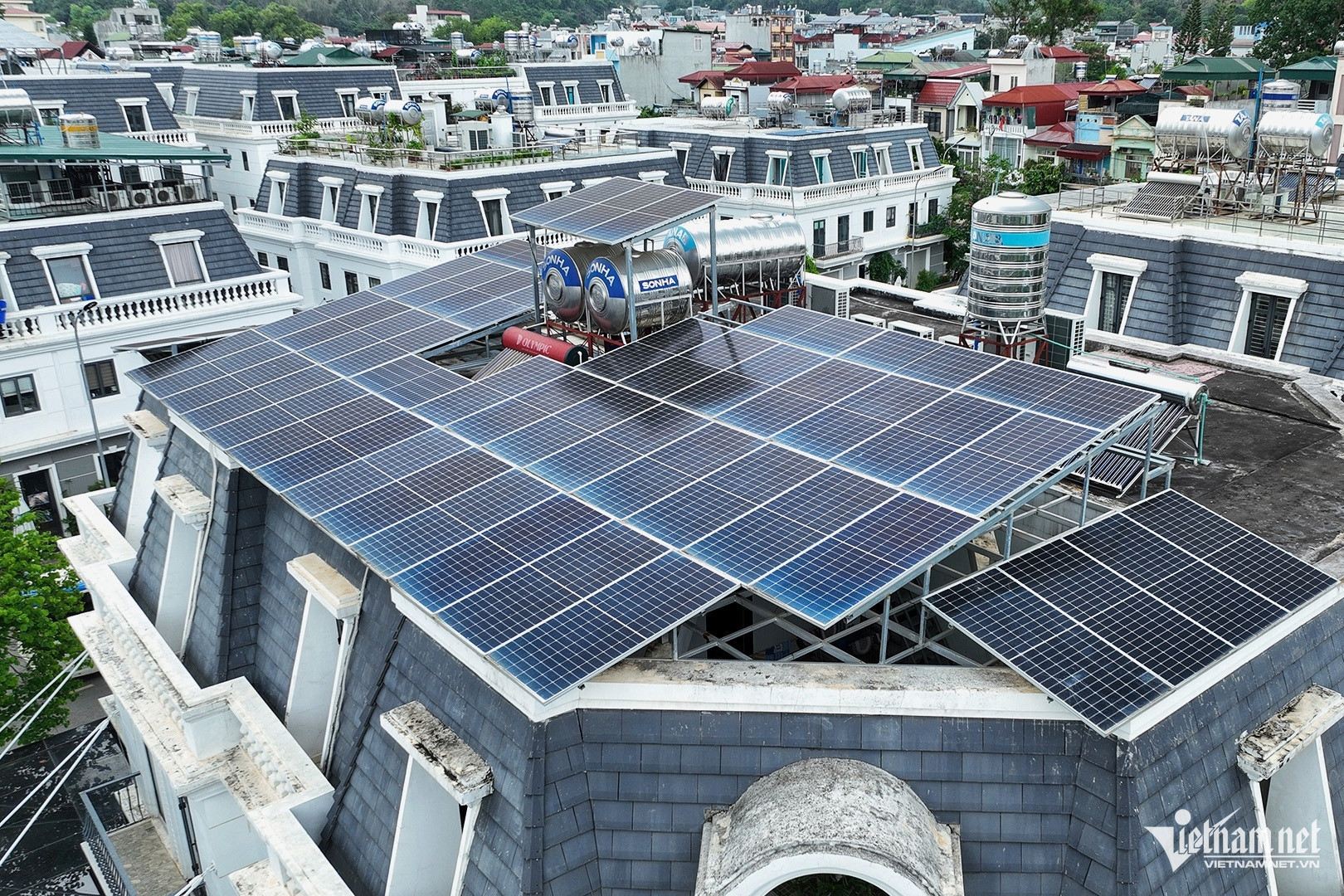
Deputy Prime Minister Tran Hong Ha on July 26 presided over a meeting discussing the draft decree on self-sufficient rooftop solar power.
In the latest draft, self-sufficient rooftop solar power is understood as power produced and consumed by the same legal entities or individuals, which mostly serves the demand of the institutions and individuals.
The institutions and individuals that own self-sufficient rooftop solar power systems can choose either to sell or not to sell their excess electricity to the national grid. If they want to sell electricity to the national grid, the maximum sold electricity volume is 10 percent of total installation capacity
Leaders of Electricity of Vietnam (EVN) and Northern Power Corporation believe there should be a mechanism to encourage the development of self-sufficient rooftop solar power in Industrial Zones (IZs) in order to deal with on-site overload and storage of electricity for use in peak hours. This could be done immediately.
Many IZs are awaiting the decree so they can begin installing rooftop solar power systems.
Ha said that electricity from self-sufficient rooftop solar power systems needs to be based on demand, electricity sources, and the typical characteristics of every region.
He asked the decree compilation agency to consider raising the maximum proportion of electricity that the owners of rooftop solar power systems can sell to the national grid to 20 percent in the north and 10 percent in the central and southern regions.
The draft decree says that enterprises in IZs can invest to install rooftop solar power systems. However, Ha said it is necessary to allow the enterprise to hire other units to install systems for the enterprises’ use.
Ha said there must be measures to ensure system safety when mobilizing electricity from self-sufficient rooftop solar powers and providing to the national grid. This must be supervised by local power companies.
Regarding the pricing of electricity to be sold to the national grid, Ha asked MOIT to consider applying the lowest offered prices in the electricity competitive market at the moment of purchase.
Ha also asked for tax and credit preferences for investors who install electricity storage systems so that it can be sold to the national grid during peak hours.
Luong Bang